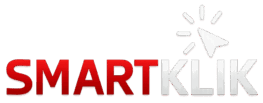Linux has long been regarded as the home of open source, but today the most important tools are available on all major platforms – Linux, macOS, and Windows. For every programmer who values freedom, flexibility, and the power of community, open-source solutions are the foundation of productivity.
Below is a curated collection of the 10 most popular and essential open-source tools that every developer should know.
I. Code Editors and Integrated Development Environments (IDEs)
These tools are the heart of programming work, where code is written, edited, and tested.
| # | Program Name | Description | Link |
| 1 | Visual Studio Code (VS Code) | A lightweight yet incredibly powerful and customizable code editor developed by Microsoft. Technically, it is not a full IDE, but with an extensive library of extensions, it offers the functionalities of a full IDE and is by far the most popular tool among modern developers. | code.visualstudio.com |
| 3 | VSCodium | A binary distribution of VS Code that consists solely of open-source code (MIT license). It is the choice for those who want all the capabilities of VS Code but without Microsoft’s branding, licenses, or built-in telemetry/tracking. | vscodium.com |
| 4 | Eclipse | One of the oldest and most established open-source IDE platforms. It is highly extensible and modular. Traditionally strong for Java application development, it also supports many other languages (C/C++, PHP, etc.). | eclipseide.org |
| 5 | Apache NetBeans | A powerful open-source IDE known for its fast and intelligent code editing support. It is primarily used for Java, but also supports PHP, HTML5, JavaScript, and other languages. | netbeans.apache.org |
| 6 | Neovim | A modern refactoring and extension of the classic Vim editor. It focuses on enhancing the user experience, uses Lua for extensions, and includes built-in support for LSP (Language Server Protocol) for advanced code recognition. | neovim.io |
| 7 | GNU Emacs | An editor with exceptional flexibility and power. Most of its functionality is implemented in Emacs Lisp, making it a popular choice for developers as a comprehensive development environment that treats the editor as a kind of operating system. | gnu.org/software/emacs |
II. Core Tools and Backend Infrastructure
These tools are essential for managing development, data, and application operations.
| # | Program Name | Description | Link |
| 2 | Git | Version Control: A free and open-source distributed version control system. It is the foundation of modern development, allowing for efficient tracking of all changes in code and secure collaboration among entire development teams. | git-scm.com |
| 8 | DBeaver Community | Database Tool: A universal and free database management tool. It supports almost all known SQL databases (MySQL, PostgreSQL, Oracle, SQLite, etc.) and is extremely popular among developers and database administrators. | dbeaver.io |
| 9 | Node.js | Platform (JS Runtime): An open-source, server-side environment for executing JavaScript code. It allows developers to use JavaScript for server-side development and command-line interface (CLI) tools, achieving a unified language stack (full-stack JavaScript). | nodejs.org |
| 10 | PostgreSQL | Relational Database: One of the most advanced open-source relational database management systems. It is extremely reliable, robust, standards-compliant, and popular for complex and critical applications. | postgresql.org |
Open-source tools are more than just free alternatives to paid software; they are the foundation of modern technology, providing developers with transparency, security, unlimited flexibility, and exceptional support from the global community.
